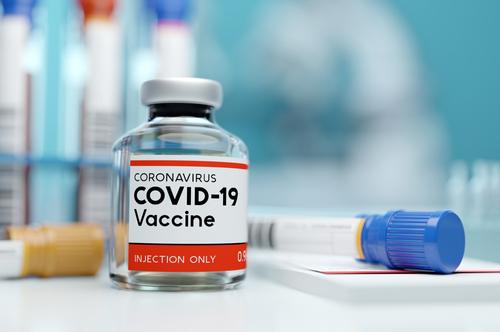
Data from the phase three trial of mRNA-1273, a COVID-19 vaccine candidate developed by Moderna, Inc., has shown promising results with a 94.5 percent efficacy rate among volunteers.
“This is a pivotal moment in the development of our COVID-19 vaccine candidate,” Moderna CEO Stéphane Bancel said. “This positive interim analysis from our Phase 3 study has given us the first clinical validation that our vaccine can prevent COVID-19 disease, including severe disease. This milestone is only possible because of the hard work and sacrifices of so many.”
The U.S. government’s top infectious diseases expert, Dr. Anthony Fauci, director of the National Institute of Allergy and Infectious Diseases (NIAID), echoed the sentiments on a conference call with Moderna on Monday.
“The results of this trial are truly striking,” Fauci said.
The announcement comes one week after competitor Pfizer Inc. announced its own COVID-19 vaccine’s effectiveness. Both companies now intend to seek emergency use authorization (EUA) with the U.S. Food and Drug Administration. Moderna has pledged to push for regulatory filings worldwide.
The mRNA-1273 vaccine candidate was a cooperative effort between Moderna and NIAID, uniting Moderna’s mRNA delivery platform and NIAID’s stabilized SARS-CoV-2 spike immunogen. It eventually transitioned from early development at NIAID to the Biomedical Advanced Research and Development Authority (BARDA) for advanced development and manufacturing support. An independent data and safety monitoring board overseeing its phase three trial has since reviewed and declared its efficacy.
Among volunteers, 95 cases of symptomatic COVID-19 emerged. Of the cases, 90 occurred in the placebo group versus five in the vaccinated group, resulting in the 94.5 percent efficacy declaration. No severe cases emerged in the vaccinated group. The trial, known as COVE, united more than 30,000 participants at 100 clinical research sites in the United States, after earlier stage clinical testing indicated the candidate was well-tolerated and immunogenic.
So far, most side effects have been mild. Severe cases were limited to injection site pain, fatigue, myalgia, arthralgia, headaches, pains, and redness. Fatigue and myalgia were the most common effects, at 9.7 percent and 8.9 percent of cases, respectively. Even then, the adverse events were generally short-lived.
The COVE study is ongoing, but Moderna expects an EUA to be based on the final analysis of 151 cases and a median follow-up of more than two months. The trial is sponsored by Moderna, but BARDA and NIAID are providing funding and technical support.




